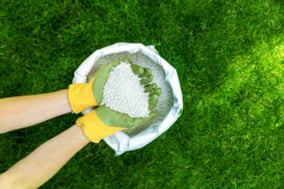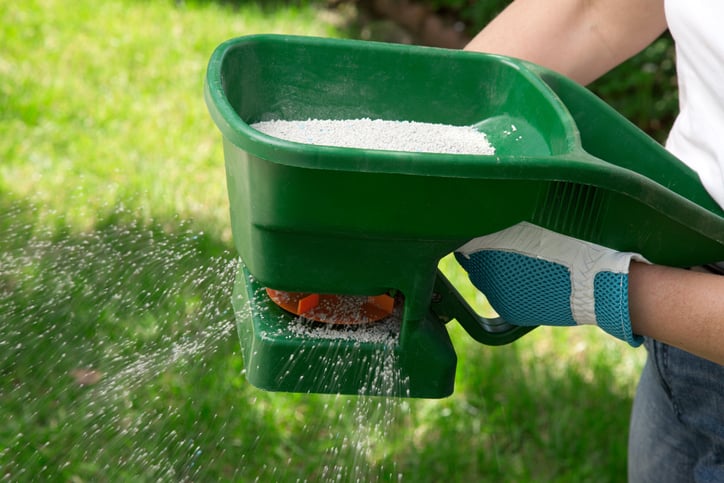Nothing beats the sight of a well-manicured lawn on a residential or commercial property. While beautiful lawns are a sight for sore eyes, getting your plants to flourish takes hard work and dedication, which involves irrigation, trimming, and, not to mention, knowing how to care for your specific plants and soil type.
The best way to keep your lawns healthy is by fertilizing them on time. Soil loses vigor after years and seasons and exploitation, calling for periodic fertilization to keep the soil's performance at its optimum, regardless of weather conditions.
 Your lawn requires proper treatment all year round, but the best time to fertilize your lawn is fall, not spring. You might have heard that spring is the best time to fertilize your yard; we are here to bring you information and educate you on the best time to fertilize your lawns.
Your lawn requires proper treatment all year round, but the best time to fertilize your lawn is fall, not spring. You might have heard that spring is the best time to fertilize your yard; we are here to bring you information and educate you on the best time to fertilize your lawns.
Reasons to Fertilize Your Lawn in Fall
You should take care of your lawn throughout the year, but the most appropriate time to fertilize your lawn is falling for various reasons. You could add fertilizer to your soil any time you feel like it, but it will come at a cost.
The beginning of fall is the perfect time to fertilize your lawn soil because the soil temperature and water content are right at this time. Here are reasons why you should fertilize your lawns in the fall:
1. Average Soil Temperature
You should not fertilize your lawn when the vegetation is dormant. Grass becomes dormant in winter or summer due to extremely low and high temperatures.
During fall, the soil temperature is medium, falling from the high summer temperatures but not too low compared to the coming winter season.
Despite it falling, you should fertilize your lawn early in the morning or late in the evening to avoid the high midday temperature. The morning and late evening dew help your grass absorb nutrients.
Medium temperatures activate optimum fertilizer electrical conductivity(EC), resulting in your plans' maximum growth rate.
2. Moderate Water Content
Only fertilize your lawn when the soil is hydrated and well-drained. If you fertilize the soil after a long dry period, your plants will not take up enough nutrients from the soil.
Water-logged soil inhibits water absorption in plants and as such, your fertilizer will not benefit the plants. You should wait for excess water to run off after heavy rains before fertilizing to avoid washing away the fertilizer by the run-off water.
For better absorption, mow your lawn before fertilizing, only leaving some grass clippings to help hold the soil together and help the roots regenerate into new plants.
3. Longer Waiting Period
Fertilizers should stay in the soil long enough before extreme temperatures, hot and cold. Fertilizing your lawn in the fall helps your grass store up stamina before the harsh winter temperatures.
The grass nodes can now store enough energy to keep them alive despite being frozen; get back alive when the snow thaws. The period before winter also gives the grass ample time to develop strong roots in preparation for a blooming green lawn in spring.
The most appropriate time to fertilize your lawn is a few weeks before the ground freezes. In Michigan, fall starts around the 22nd of September and ends at the beginning of December.
Proper Lawn Care Plan With Lush Lawn
As lawn care experts, Lush Lawn is passionate about helping you maintain a clean and healthy lawn. Let us help you gauge the right temperature and exact date to fertilize your soil. Knowing your grass type (cool-season grasses are more common in Michigan) and timing the growing growing season is critical.
If you are interested in professional lawn management and learning about proper plant and lawn care, contact your local Lush Lawn branch in Michigan and its environs.
